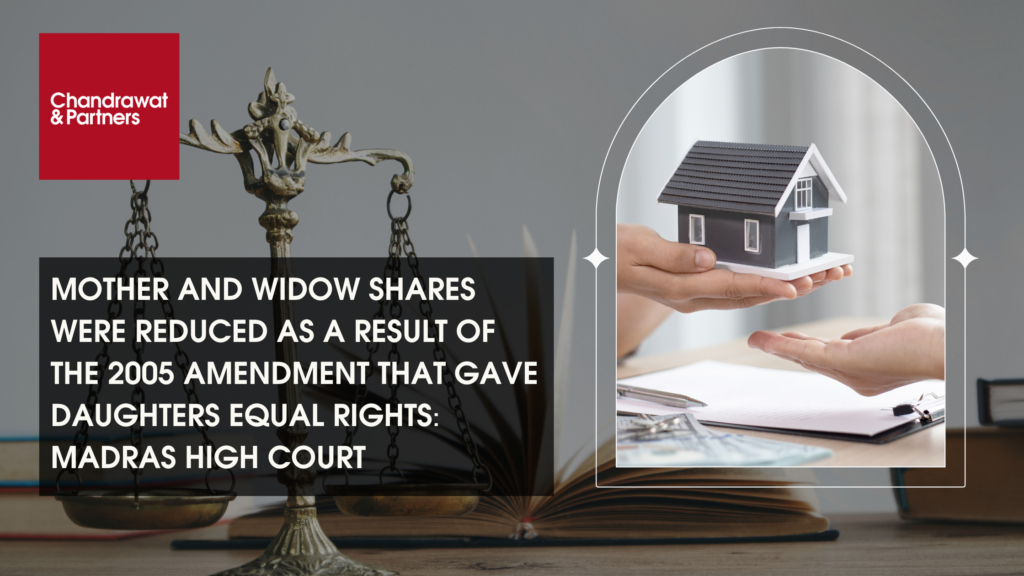Home > Recent Judgements > Mother And Widow Shares Were Reduced As A Result Of The 2005 Amendment That Gave Daughters Equal Rights: Madras High Court
Nov 13, 2024

BACKGROUND
In the case of Vasumathi and Another v R Vasudevan and Others, the case involves two daughters challenging the decision of the Additional District Judge, Coimbatore, which had reversed the partition suit in their favour. The daughters wanted a share in the ancestral property based on Section 6 of The Hindu Succession Act, amended 2005, whereby they have coparcenary rights. The father, the first respondent, maintained that it was personal property after a deemed partition in 1986 with his brother. However, the daughters claimed that the properties are still ancestral as they produced a partition deed which indicated the property was ancestral. The Madras High Court while dealing with the appeal maintained the claim of the daughters and held that they have a right to a share in the ancestral property as coparceners in terms of the amended law and overruled the decision of the lower court.
ISSUES
- Whether the daughters of a deceased coparcener have a right to a share in ancestral property under the Hindu Succession Act, 1956, following the 2005 amendment?
- Whether the notional partition under Section 6 of the Hindu Succession Act, 1956, affects the right of a female heir to succeed to ancestral property?
- Whether the right to property is essential for women to achieve economic freedom and dignity, as guaranteed under the Constitution?
- Whether the property in question retains its character as ancestral property after the partition deed executed in 1986, which treated the property as ancestral?
JUDGEMENT
The Madras High Court ruled that the daughters of a deceased coparcener are entitled to a share in the ancestral property under Section 6 of the Hindu Succession Act of 2005 since they are coparceners. The court stated that it is pertinent to note that the right to property is necessary to provide some level of economic independence and ‘dignity’ to women so that other personal rights can be enjoyed by them efficiently. The court held that the property in dispute, which the father claimed was not personal, was ancestral since it had been so described in the partition deed. Consequently, the daughters were to receive a share of the property while the father’s settlement deed in favour of the son was illegal as the daughters had an inalienable right over the property. Consequently, the appeal was allowed and the additional district judge’s decision was overturned.
OBSERVATION
The Madras High Court further noted that the 2005 amendments of the Hindu Succession Act were favorable to the daughters of a family in that they granted them a share in the ancestral property but at the same time, diminished the already existing share of surviving coparceners like the widow and mother of the deceased. The court pointed out that the imaginary division of ownership interests under Section 6 was a compromise to the aim of integrating female heirs within the economic hierarchy of the family with the preservation of the coparcenary. The court focused on the issue of land rights for women as a prerequisite for self-respect, where people talk about economic independence being the real enjoyment of their rights. Furthermore, the court also found that the property in question did not cease to be ancestral in view of the partition deed made in 1986, because it was so stated in that document which, therefore, entitled the daughters to a share as coparceners.
For more information or queries, please email us at
enquiries@chandrawatpartners.com




